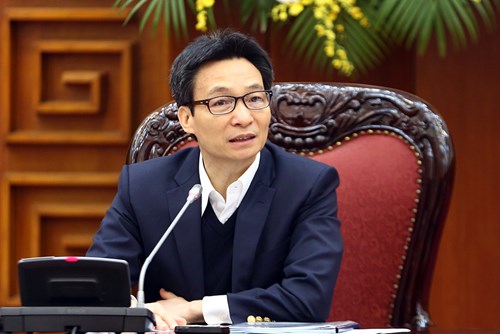    |
 |
Deputy PM Vu Duc Dam. Photo: VGP
|
He was speaking at a meeting in Hanoi on December 21 to review
the five-year implementation of Resolution 15/NQ-TW adopted by the Communist
Party of Vietnam (CPV)’s 11th Central Committee on social policy issues in
2012-2020.
The Deputy PM urged ministries and
localities to continue reviewing policies of poverty reduction and social
welfare.
On employment, Deputy PM Dam said it
is necessary to improve employment quality and labor productivity through
encouraging new firms, thus creating more jobs, and developing human resources
training.
He asked localities to examine the
vocational training system in 2018, especially for rural workers, and improve
social infrastructure at industrial parks.
The education and training work needs
the involvement of the whole society, focusing on supporting students in remote
and underprivileged areas, as well as children from disadvantaged backgrounds,
Dam said.
Regarding public health, the deputy
PM required the health sector and related agencies to continue improving public
healthcare services, reinforcing the operation of medical facilities at
grassroots level, and providing initial health care for people, especially
welfare beneficiaries and elderly people.
The Government official told the
Ministry of Science and Technology, the Ministry of Labor, Invalids and Social
Welfare, and the Ministry of Information and Communication to develop social
welfare cards - which could be used for payment.
According to reports at the meeting,
the number of people joining social insurance has increased around 3.2 million
over the past five years to reach 13.8 million in 2017 (accounting for 25.76
percent of the labor force).
The proportion of people covered by
health insurance increased to 85.59 percent in 2017 from 59.1 percent in 2012.
As of the end of 2017, around 2.78
million people are receiving monthly social allowance.
The country has completed
educational universalization at kindergarten, primary and secondary levels. As
much as 88.2 percent of rural population got access to hygienic water as of
October 30, 2017.
Source: VNA